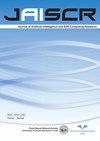Type-2 Fuzzy Logic Systems in Applications: Managing Data in Selective Catalytic Reduction for Air Pollution Prevention
IF 2.4
3区 计算机科学
Q2 COMPUTER SCIENCE, ARTIFICIAL INTELLIGENCE
Journal of Artificial Intelligence and Soft Computing Research
Pub Date : 2021-01-29
DOI:10.2478/jaiscr-2021-0006
引用次数: 4
Abstract
Abstract The article presents our research on applications of fuzzy logic to reduce air pollution by DeNOx filters. The research aim is to manage data on Selective Catalytic Reduction (SCR) process responsible for reducing the emission of nitrogen oxide (NO) and nitrogen dioxide (NO2). Dedicated traditional Fuzzy Logic Systems (FLS) and Type-2 Fuzzy Logic Systems (T2FLS) are proposed with the use of new methods for learning fuzzy rules and with new types of fuzzy implications (the so-called ”engineering implications”). The obtained results are consistent with the results provided by experts. The main advantage of this paper is that type-2 fuzzy logic systems with ”engineering implications” and new methods of learning fuzzy rules give results closer to expert expectations than those based on traditional fuzzy logic systems. According to the literature review, no T2FLS were applied to manage DeNOx filter prior to the research presented here.应用中的2型模糊逻辑系统:用于空气污染预防的选择性催化还原中的数据管理
本文介绍了模糊逻辑在DeNOx过滤器减少空气污染中的应用研究。研究目的是管理选择性催化还原(SCR)过程的数据,该过程负责减少氮氧化物(NO)和二氧化氮(NO2)的排放。利用学习模糊规则的新方法和新类型的模糊含义(所谓的“工程含义”),提出了专用的传统模糊逻辑系统(FLS)和2型模糊逻辑系统。所获得的结果与专家提供的结果一致。本文的主要优点是,具有“工程意义”的2型模糊逻辑系统和学习模糊规则的新方法比基于传统模糊逻辑系统的结果更接近专家预期。根据文献综述,在本文进行研究之前,没有应用T2FLS来管理DeNOx过滤器。
本文章由计算机程序翻译,如有差异,请以英文原文为准。
求助全文
约1分钟内获得全文
求助全文
来源期刊

Journal of Artificial Intelligence and Soft Computing Research
COMPUTER SCIENCE, ARTIFICIAL INTELLIGENCE-
CiteScore
7.00
自引率
25.00%
发文量
10
审稿时长
24 weeks
期刊介绍:
Journal of Artificial Intelligence and Soft Computing Research (available also at Sciendo (De Gruyter)) is a dynamically developing international journal focused on the latest scientific results and methods constituting traditional artificial intelligence methods and soft computing techniques. Our goal is to bring together scientists representing both approaches and various research communities.
 求助内容:
求助内容: 应助结果提醒方式:
应助结果提醒方式:


